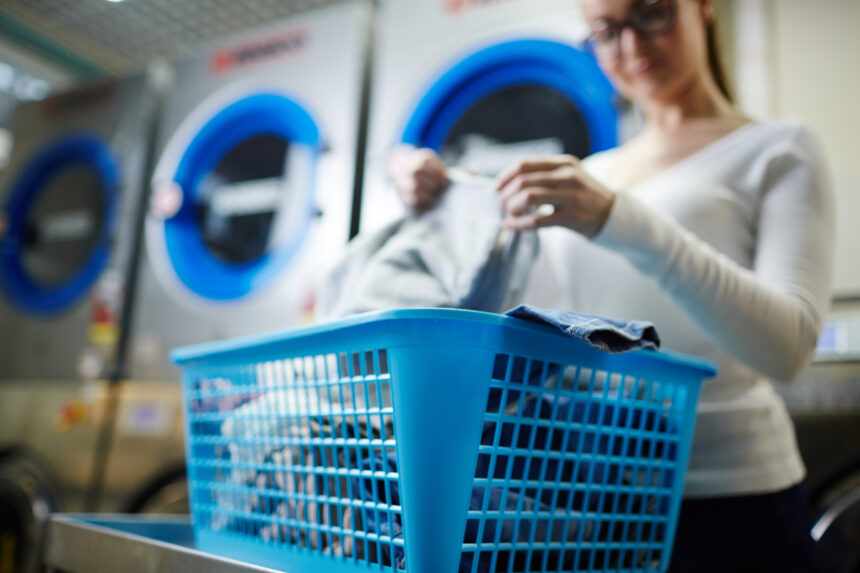Energy-efficient laundry practices not only help reduce utility bills but also contribute to environmental conservation. By adopting these tips, you can optimize your laundry routine to save energy and water:
- Use Cold Water: Washing clothes in cold water instead of hot or warm water can significantly reduce energy consumption. Modern detergents are formulated to work effectively in cold water, saving on heating costs and preserving fabric quality.
- Opt for Full Loads: Maximize the efficiency of your washing machine by washing full loads of laundry whenever possible. Running full loads reduces the number of cycles needed and conserves both water and energy.
- Choose High-Efficiency Appliances: Consider investing in Energy Star-certified washing machines and dryers, which are designed to use less water and energy compared to conventional models. These appliances often feature advanced technologies that optimize performance while minimizing environmental impact.
- Air Dry When Possible: Whenever feasible, air dry your laundry instead of using a dryer. Hang clothes on a drying rack or outdoor clothesline to take advantage of natural air circulation. This not only saves energy but also helps extend the lifespan of your clothing.
- Clean Dryer Vents and Lint Traps: Regularly clean the dryer vents and lint traps to ensure optimal airflow. A clogged vent reduces dryer efficiency and increases energy consumption. Clean vents also reduce the risk of fire hazards associated with lint buildup.
- Use High Spin Speeds: Use the highest spin speed setting on your washing machine to extract more water from clothes before drying. Less moisture in clothes means reduced drying time and energy usage.
- Time Laundry Cycles Wisely: Take advantage of off-peak hours for laundry, typically early morning or late evening, when energy demand is lower. Some utility providers offer discounted rates during off-peak hours, further incentivizing energy-efficient practices.
- Consider Eco-Friendly Detergents: Choose detergents that are labeled as environmentally friendly or biodegradable. These detergents often require less water to rinse out and may contribute to reduced environmental impact.
Adopting energy-efficient laundry practices is essential for several reasons, benefiting both the environment and our personal lives.
1. Environmental Impact
- Reduction in Energy Consumption: Energy-efficient laundry practices significantly reduce the amount of electricity used, decreasing the demand on power plants and thereby lowering greenhouse gas emissions.
- Water Conservation: Modern, energy-efficient washing machines and practices often use less water, which is crucial for conserving this vital resource, especially in areas prone to drought.
- Lower Carbon Footprint: Using less energy and water contributes to a smaller carbon footprint, helping to combat climate change and reduce pollution.
2. Economic Benefits
- Lower Utility Bills: By consuming less energy and water, households can see a noticeable reduction in their utility bills, leading to significant cost savings over time.
- Extended Appliance Lifespan: Energy-efficient practices, such as using cold water and maintaining appliances properly, can extend the lifespan of washing machines and dryers, reducing the frequency and cost of repairs or replacements.
3. Clothing Longevity
- Less Wear and Tear: Washing clothes in cold water and using gentle cycles can minimize fabric wear and tear, helping garments last longer and maintain quality.
- Reduced Fading and Shrinking: Energy-efficient practices often involve using lower temperatures, which helps preserve colors and prevent shrinking, keeping clothes looking new for longer.
4. Health Benefits
- Reduced Chemical Use: Energy-efficient laundry practices may include using eco-friendly detergents and shorter wash cycles, reducing exposure to harsh chemicals that can be harmful to skin and health.
- Improved Indoor Air Quality: Minimizing the use of high-heat drying cycles reduces the emission of potentially harmful fumes from synthetic fibers, contributing to better indoor air quality.
5. Encouraging Sustainable Habits
- Promoting Awareness: Adopting energy-efficient laundry practices raises awareness about the importance of sustainability and encourages individuals to consider energy efficiency in other areas of their lives.
- Setting an Example: Practicing and advocating for energy efficiency can inspire others in the community to adopt similar habits, amplifying the positive environmental impact.
Conclusion
Implementing energy-efficient laundry practices not only saves money on utility bills but also reduces your household’s carbon footprint. By using cold water, washing full loads, investing in high-efficiency appliances, air drying when possible, cleaning dryer vents, using high spin speeds, timing laundry cycles wisely, and opting for eco-friendly detergents, you can contribute to energy conservation and environmental sustainability. Adopt these tips into your laundry routine to promote efficiency, prolong the lifespan of your appliances, and support a greener future.




